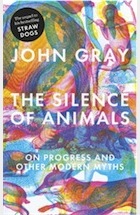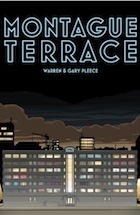The Mussel Feast - The Childhood of Jesus
The latest series from plucky publisher and champion of translated fiction Peirene Press is their Turning points series. Continuing their focus on books that can (and preferably should) be read in a single sitting this series looks at 'revolutionary moments' and opens with this novella from Germany where it is a bestseller that has remained in print since 1990. That date coincides with the fall of the Berlin Wall of course and Vanderbeke has said that she wrote the book as an attempt to 'understand how revolutions start' but placing the conflict within a family unit.
The family in question are awaiting the return of their father from an important business trip which they expect to have sealed his final promotion. As a result the plan that evening is to enjoy the meal of the title and the book opens as a mother and her two teenage children go about the ritual of preparing and cooking four kilos of mussels in anticipation of his return. As the clock ticks past the time he would usually come home, and then past the time they planned to eat, and then even further into the evening, the foundations of this cosy family set up begin to crumble away and we realise that the three people at home are living in the shadow of a tyrannical father.
The book itself is only just over a hundred pages but I must confess that I made several abortive attempts to read it before I finally managed to finish it. Part of this is to do with what I mentioned above; this, and probably all of Peirene's titles benefit from being read in one go (in fact what book isn't more of a joy when you can devote some serious time to devouring it?) and my snatched attempts on the train or at work simply didn't do enough to catch me in. That said, having now finished it after finding a miraculous morning to myself, I'm still a little lukewarm about it compared to some of the enthusiastic readers elsewhere.
This is effectively a 100 page monologue, with no paragraphs, and delivered in a voice which never really excited me. Yes, there are moments of dark humour, and there's a perverse joy to be found in the slow reveal of just how oppressed this family really is, but I never quite clicked with the tone nor was I sufficiently enthused by the allegorical nature. Vanderbeke does write wonderfully though when using subtle symbols to add atmosphere and feeling to the scene. That huge pot of mussels for instance is ominous at the start with its strange noises as the mussels cook and shift about, then their increasing distastefulness as they sit there and lose heat, colour and appeal, whilst the family wait for the patriarch who may or may not ever walk through the door.
Published now by Peirene Press.
 The Childhood of Jesus - J M Coetzee
The Childhood of Jesus - J M CoetzeeA new novel from Coetzee is always going to be exciting, especially if you've recently started reading and enjoying his books and doubly so if you suspect that it might be in the vein of those allegorical novels that you have loved rather than the slightly intimidating recent works that feature various incarnations of the man himself. A bit of a disappointment then to be confronted by a book which is both so blatantly allegorical that it comes across as almost juvenile (No, I haven't lost it and just called Coetzee juvenile, just the effect of some of the rather heavy-handed Christian imagery or thought) whilst also managing to be completely baffling in its use of allegory so that I, and many other readers, were left scratching their heads at the end wondering what on earth all that was about.
After a journey across the sea, a man and a boy arrive in a new country where they are assigned new names and ages and begin to learn Spanish, the language of this, their new home. Simón is not the father or grandfather of David, the boy under his charge, but has assumed responsibility for him during their crossing and has set his heart on reuniting him with his mother whom he is convinced he will recognise when he sees her. The two of them are welcomed into a Kafkaesque bureaucracy in the city of Novilla that is by turns helpful and frustrating and even when the two of them begin to find their feet with some kind of shelter, employment and food they find themselves living in a country where food is basic, desires simple and no thought is wasted on the past which many seem to have simply forgotten or left behind.
Simón finds work as a stevedore in the port, unloading back-breaking sacks of grain from huge ships and indulging in philosophical chats with his co-workers. He strikes up an odd relationship with a woman, Elena, who challenges his notions of companionship and attraction. Then he meets a woman who he becomes convinced is David's mother. The novel is filled with conversation after conversation, debate after debate; some, as I've said, dotted with such obvious lines and symbols of Christianity that it's almost funny, some frankly bizarre like a discussion about the poo-ness of poo, the point at which it ceases to be our poo and joins all of the other general poo in the sewer (I sh*t you not).
All the while we are stumbling along with the plot or searching for meaning in and behind the conversations what actually remains for the reader to hold onto and take away? For me personally there was a lot about parenthood, care and how we shape the lives of those in our charge. It is clear that Simón cares deeply for David (feeling his absence like the loss of 'a limb or perhaps even his heart') which makes it all the more bizarre that he can hand him over to, ostensibly, a complete stranger as a mother. I found the book to be increasingly distressing to read as a result and think it may be some time before I have fully come to terms with it and begun to unravel what meaning lies behind it.
Published now by Harvill Secker. Read more...










